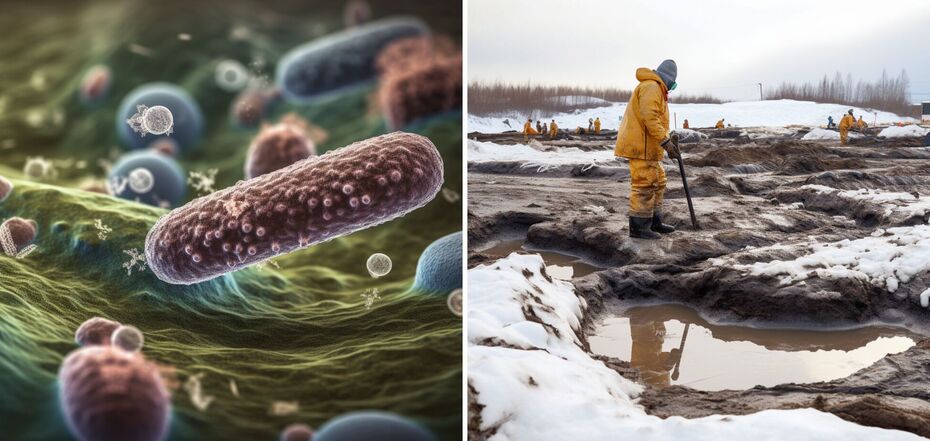News
Extinction and destruction of ecosystems: dire consequences of zombie bacteria awakening are named
The awakening of ancient bacteria that are currently dormant in permafrost could cause a crisis on the planet, resulting in the destruction of ecosystems and extinction. Ancient pathogens may come back to life due to global warming, which leads to melting permafrost.
This is stated in a study published in the journal PLOS Computational Biology. The crisis scenario is only one of the possible ones as scientists cannot predict how the "resurrected" bacteria will behave. They assume that they will not be "peaceful".
It is the unpredictability of what will happen to the pathogens that will break free that worries scientists the most.
The scientists conducted a very detailed computer simulation in which a digital virus-like pathogen from the past was introduced into a digital petri dish with other bacteria-like hosts.
"We use artificial simulations of life. You have these digital organisms that are like computer programs competing for resources. Although they are quite abstract, they act like bacteria. They use resources to grow, compete, reproduce, and interact with the environment in a similar way," Giovanni Strona, lead author of the study from the Joint Research Center of the European Commission and the University of Helsinki, told IFLScience.
The simulations showed that ancient pathogens can often survive and evolve in the modern microbial world, which is an impressive discovery in itself.
It also turned out that they are very successful in this and can even become the dominant species or increase microbial diversity. However, there have also been simulations where the "invaders" have produced unpredictable results.
"Some invaders that seemed unlikely could turn out to be very successful and be very unpleasant for society," Strona explained.
According to him, it is the unpredictability of this process that "is the biggest problem" as it confirms that humanity will have a hard time preparing to confront these pathogens.
Meanwhile, rising global temperatures are increasingly leading scientists to believe that dormant microbes that have been frozen in ice caps and permafrost for thousands of years may wake up and be released into the environment.
It is not only about whether these pathogens could infect humans, causing a new pandemic, but also about the return of ancient microbes upsets an existing equilibrium that has likely been stable for thousands of years.
Scientists are concerned that the return of even such a tiny microorganism could have profound consequences for the wider ecosystem.
"Disrupting the structure of ecological communities is not a good thing even if the net diversity has remained the same or even if it has increased. We can have some kind of cascading effects that are completely unpredictable. You can trigger cascading effects that can destroy ecosystems or lead to new extinctions," Strona said.
It could also affect humans, who are inextricably linked to the trillions of microorganisms that live in and around us. So adding new undesirable characters to this mix could upset the long-standing balance, increasing the risk of disease and disaster.
Subscribe to OBOZREVATEL on Telegram, Viber, and Threads channels to keep up with the latest developments.



























